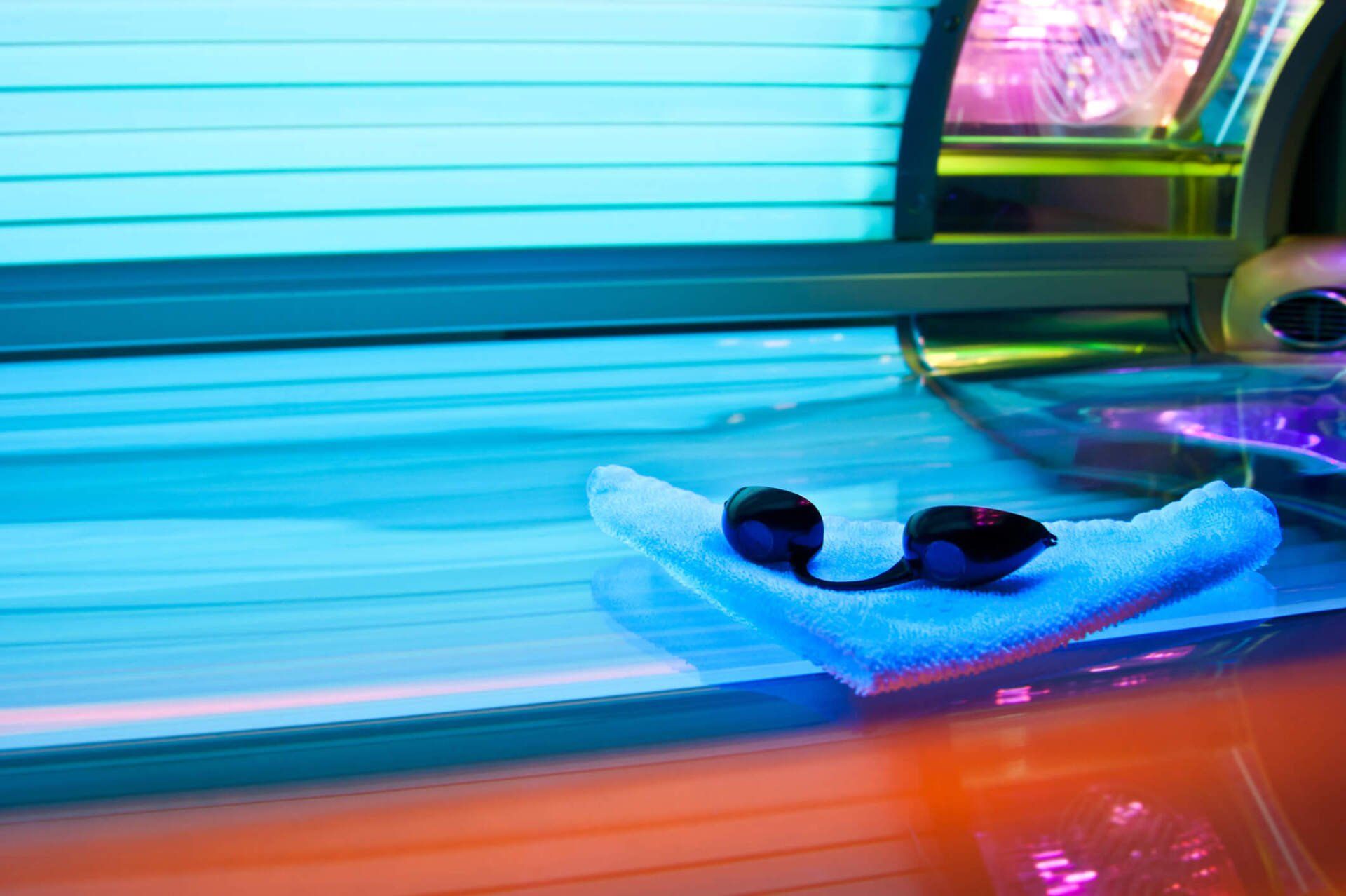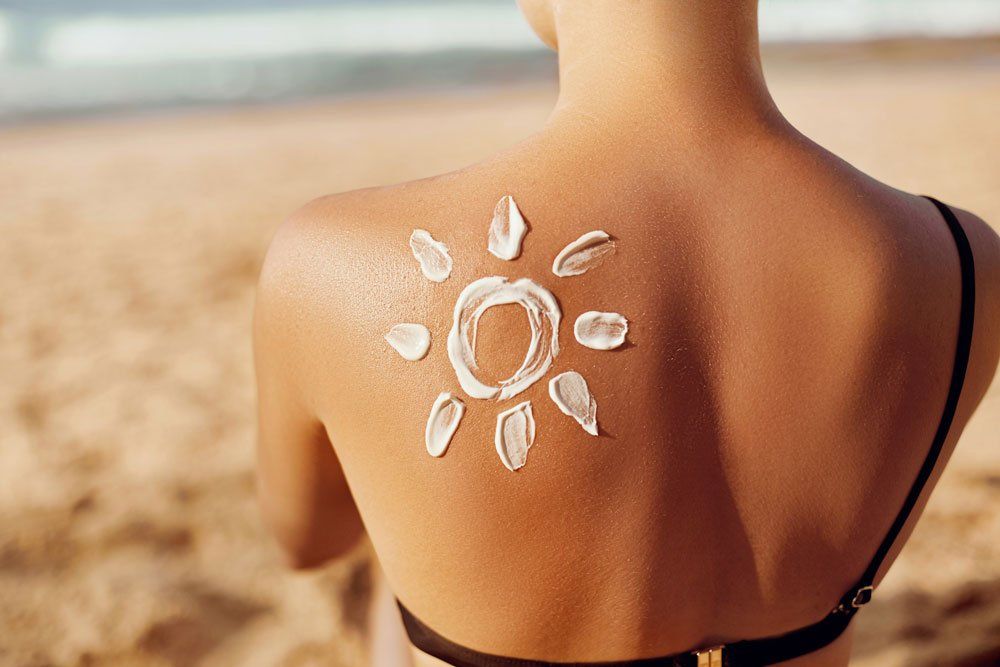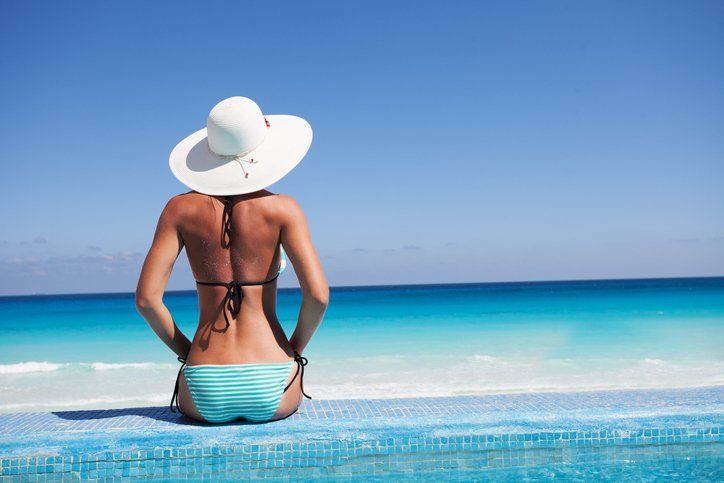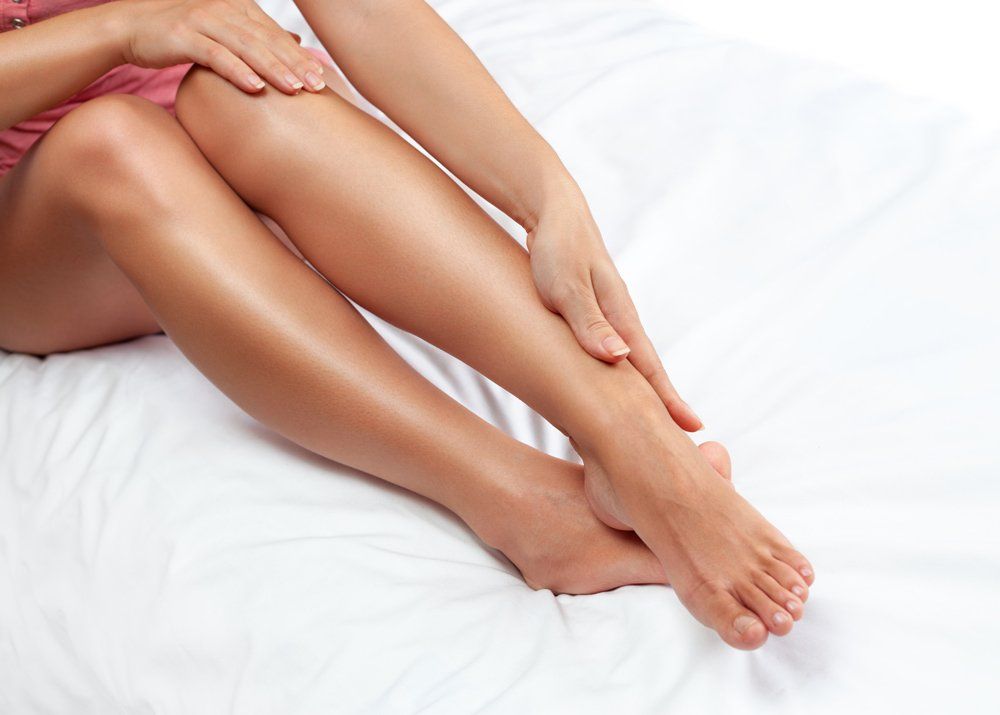
You have acne but still want golden skin. You've considered tanning but are unsure how your skin will look after you get your golden glow.
Will tanning make your acne worse? Will a tanning bed increase your susceptibility to acne? Or will tanning help cure your acne and make your acne scars less apparent? This guide will help answer these questions while giving insight into different types of tanning - UV, sunless, and spray tanning - for your acne-prone skin.
UV Tanning and Acne
While going to a tanning bed can temporarily make your acne's redness less apparent, tanning itself will not cure acne. UV tanning in particular can dry out your skin, making your skin produce more oil. More oil production in your skin can make your acne worse.
If you want to use UV tanning beds when you have acne, first make sure that any medication you take doesn't cause you to burn more easily. If your doctor is fine with your tanning, then visit the tanning bed for only a few minutes at a time.
Follow up your appointment by slathering your skin with a moisturizing agent such as aloe vera to keep your skin soft and healthy and to keep oil production at bay. Witch hazel, which you can find at grocery stores, is a natural astringent for managing oil production in the skin.
Sunless Tanning and Acne
Sunless tanning is a safe alternative to UV tanning. However, you should never buy a self-tanner to use at home. A sunless tan is a lotion with skin-darkening pigments that temporarily tan the skin. Some self-tanners contain oils and chemicals that irritate the skin and make acne worse.
Go to a tanning salon that features sunless tanning services. Opt for an oil-free sunless tan that will gradually darken your skin and leave a streak-free, even finish. If you worry about acne on your face, back, or other area, ask your technician to use caution on existing acne spots or scars to avoid darkening these areas too much.
Before getting a sunless tan, gently exfoliate your skin at home with a loofah and some water. Exfoliating your skin will remove dead skin cells and open your pores to absorb a more even tan for a beautiful, smooth finish. Exfoliating can also help prevent clogged pores and keep future acne at bay.
Spray Tanning and Acne
A spray tan is perhaps the most effective way to get an instant golden glow without damaging your skin. A spray tan is best done at a tanning salon. A tanning specialist
uses a special wand or a spray tan booth to gently coat your body with a pigmented solution. The pigments in the solution depend on your current skin color and how dark you wish your skin to become.
A spray tan can be applied to all parts of your body or just the areas you wish to darken. For example, if you have deep acne around your jaw, then you may want to forgo spray tanning your face. Spray tanning the dried skin around acne can cause darker spots.
The problem with spray tanning and managing acne at once is this: some acne treatments and washes have harsh chemicals in them that can wipe away the results of a spray tan, leaving white spots and unevenly colored skin. Ask your technician what acne products or soaps you can use after getting a spray tan to help your results last longer.
You can get a tan while managing your acne at the same time. Allow our experienced tanning specialists at Golden State Tanning Studio to educate you on how to tan with acne-prone skin.













